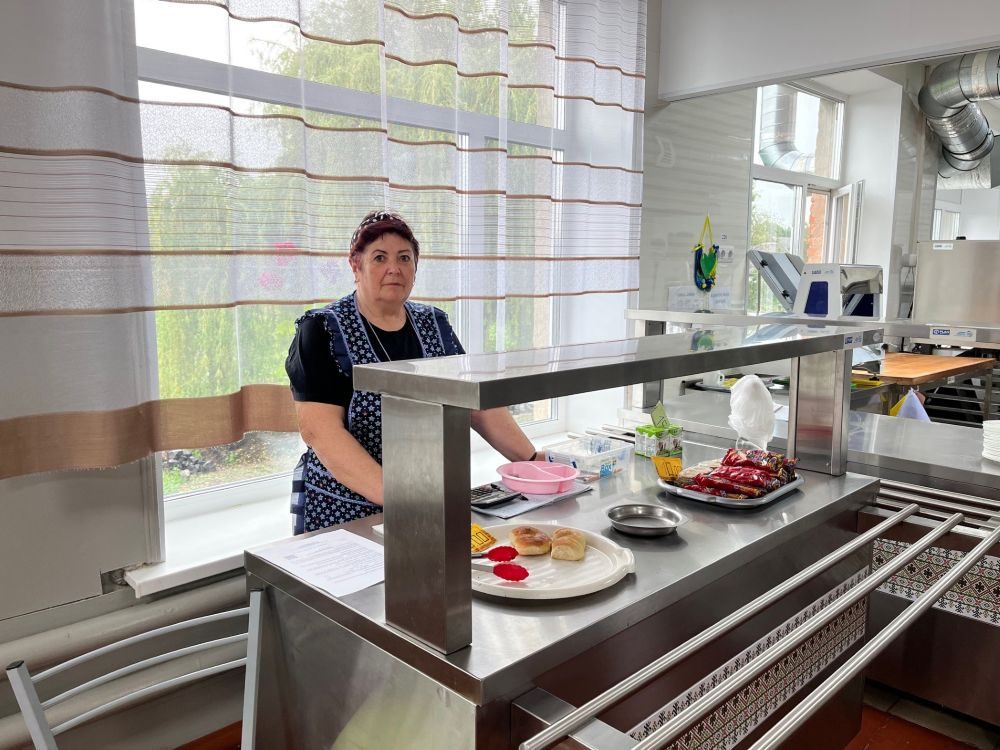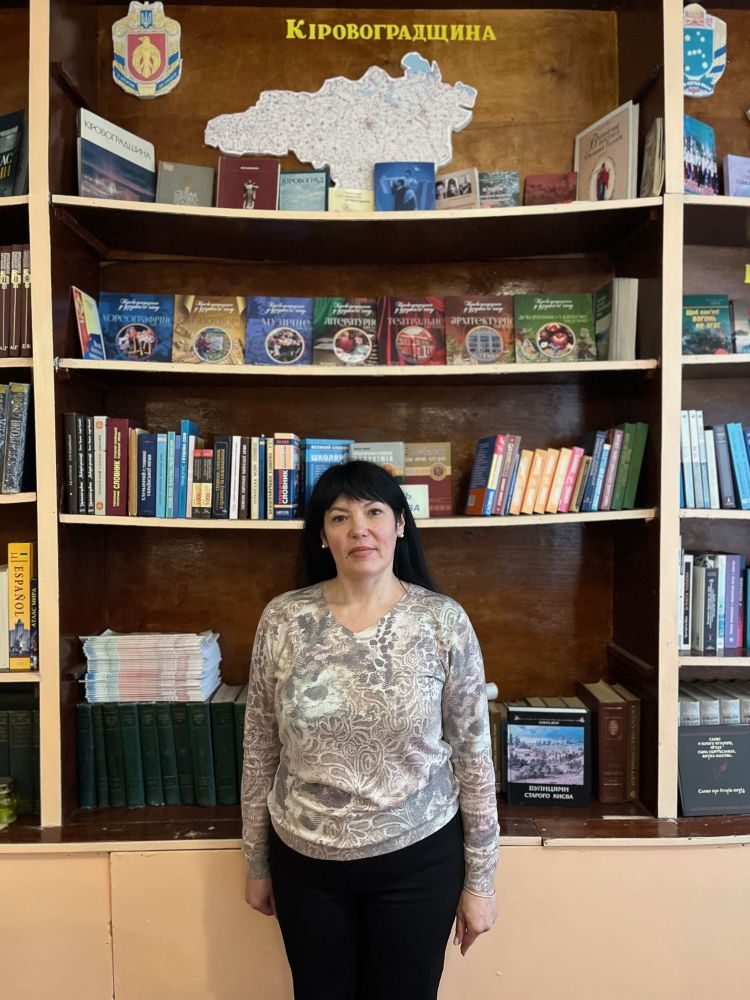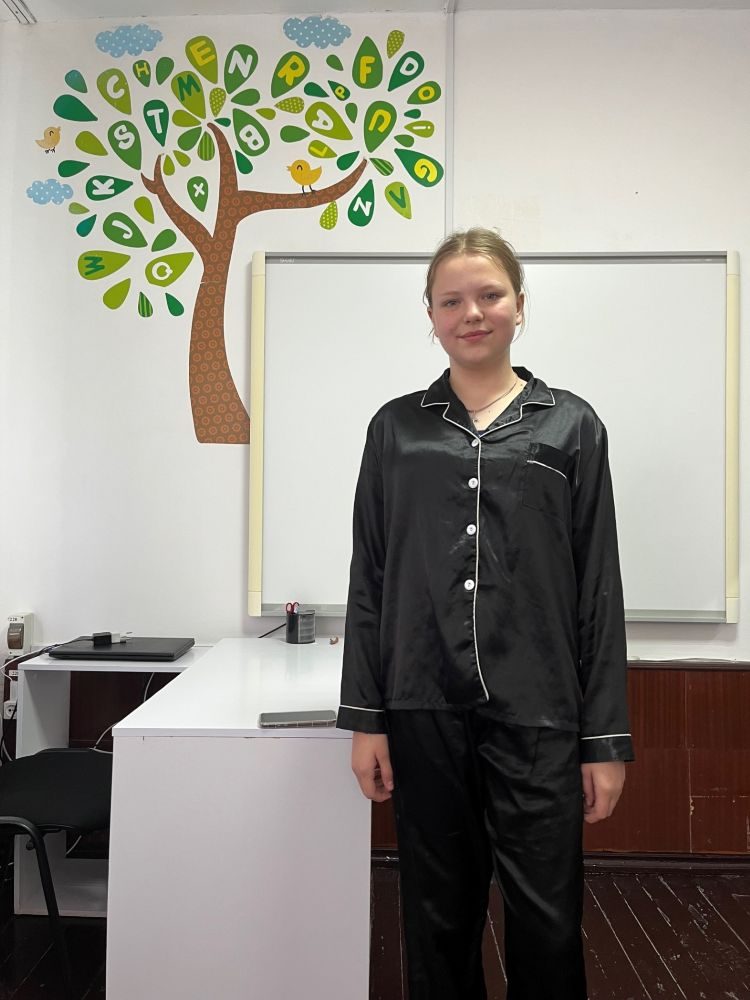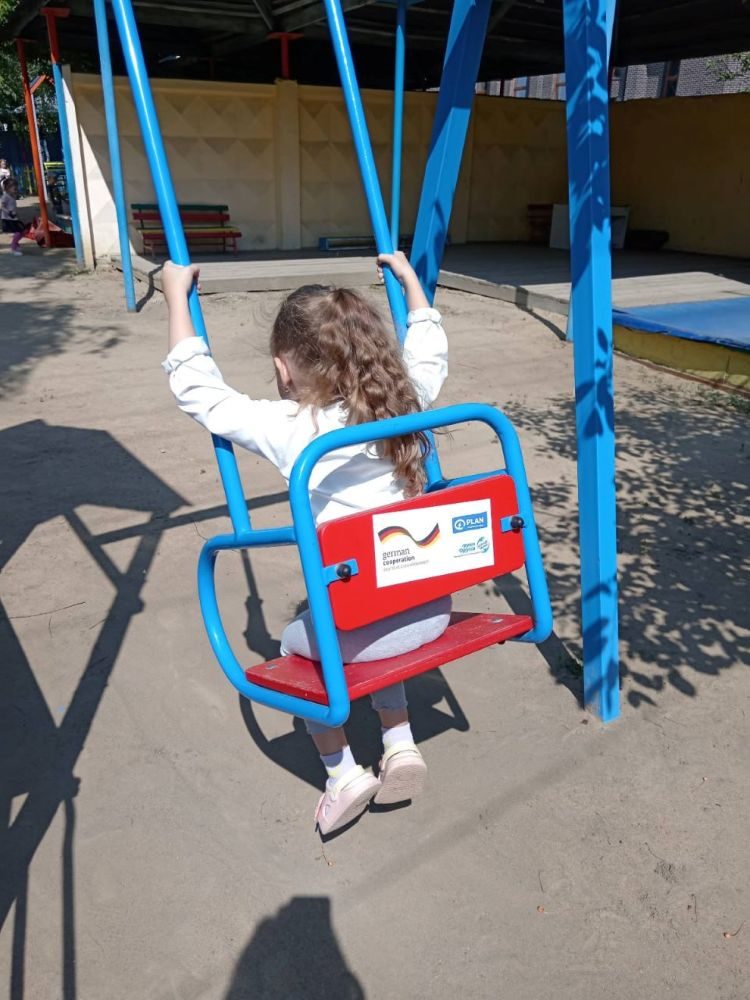Improving schools in Ukraine
Svitlana and Antonia are both heads of schools in central Ukraine, which host internally displaced children. They say renovations to outdated equipment in their schools transformed their ability to provide for their students.

Renovations to the canteen have allowed chefs to create new, restaurant-quality dishes. © Plan International
Educational structures in Ukraine are rapidly being destroyed—the 2025 Humanitarian Needs and Response Plan for Ukraine estimates that almost 3,600 educational institutions have been damaged since the escalation of the conflict in 2022, including schools. Additionally, displacement forces students to turn to online and remote learning, limiting their interactions with peers. All in all, 1.6 million children have had their education impacted or disrupted by the war in Ukraine.
UNHCR reports 3.7 million internally displaced people (IDPs) in Ukraine. Many fleeing frontline areas in the east and south have sought refuge in central Ukraine, and these numbers are expected to rise as fighting intensifies. At the same time, host communities are facing higher costs of living, inflation, unemployment and worsening economic prospects. The influx of IDPs can increase pressure on the local population and their infrastructure, like schools, kindergartens and youth clubs.

Many facilities were inadequately equipped before the escalation of conflict in 2022, creating a higher strain when IDPs came. Antonia, head of a secondary school in central Ukraine, says the school’s canteen lacked the necessities to provide for its students. “We did not have the proper and modern equipment that aligned with safety and food preparation standards,” says Antonia. “We couldn’t provide proper child protection and quality nutrition in our school.”
Svitlana, head of a kindergarten in central Ukraine, says the playground at the school was so outdated that it posed a safety concern for her students. The equipment was installed in 1991 and has not been modernised since. “Children spend a significant amount of time outside, around 3-4 hours a day,” she explains. “The equipment must be secure and comply with both sanitary regulations and preschool programme requirements. All the best should be for our children.”
Enhancing nutrition
In 2024, the canteen in Antonia’s secondary school was chosen for renovation. “It was an emotional burst of excitement,” she remarks. “We could provide our children with high-quality, healthy nutrition in accordance with state regulations.”

As part of the canteen renovation, the school received new tables and chairs, dishware, and kitchen equipment, as well as a new ventilation system. Staff received training courses to prepare restaurant-level dishes for students. Mariia, 13, says the food has gotten much better since the renovation. “I have an elder brother and sister. They also studied at this school,” she explains. “When I told them how tasty the school food is now, they are eager to try it by themselves.”
Olena, former head of the school who now works in the local administration, says the renovation improved the feeling of the canteen itself. “When you step into the canteen, you feel a sense of cosiness, as if you are at home,” she says. “The overall atmosphere motivates children to learn how to behave at the table and use cutlery. The canteen we have now is a pure miracle, the best in our Hromada.”
“The overall atmosphere motivates children to learn.”
Olena, former head of the school

Creating safe play
Within the same project, Svitlana’s kindergarten was selected for renovation. “When the work was already in full swing, I was happy like a child, and the children’s parents cried with joy,” she recalls.
Svitlana’s kindergarten hosts 91 children above the age of 2, including internally displaced children. Before the renovation, the outdated equipment posed a safety concern for them. This limited their opportunity to develop skills that are complemented by play, as well as integration for internally displaced children.
“There is an opportunity not only to play, but also to develop, to conduct various types of physical education and health work,” says Svitlana. “We hold classes on them, play, spend breaks, and organise holidays and sports festivals.”
“There is an opportunity not only to play, but also to develop.”
Svitlana
About the project
Plan International began implementing its “Building Back Better II” project in 2023 as the second phase of a longer-term project focused on Ukraine’s reconstruction. The project, supported by the German Federal Ministry for Economic Cooperation and Development, is implemented in 4 oblasts in central Ukraine. For the renovation of schools, Plan International partnered with local organisation Friends’ Hands, who conducted the needs assessment, procured equipment, and prepared a distribution plan for delivery to target locations.
Categories: Education, Emergencies


